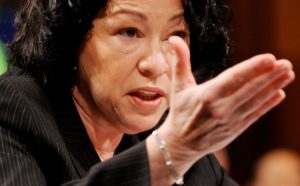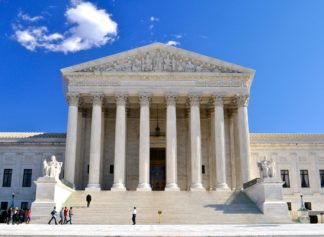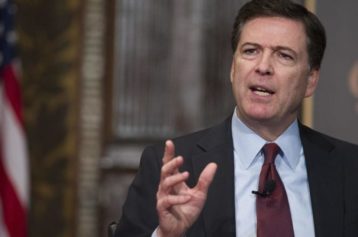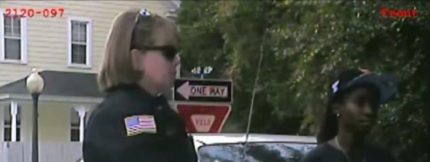
Supreme Court Justice Sonia Sotomayor issued powerful dissent Monday on the dangers of illegal stops.
The Supreme Court handed down a 5-3 ruling Monday on Utah v. Strieff, a Fourth Amendment case involving an unlawful police stop.
The Fourth Amendment is commonly considered a privacy safeguard, protecting the right of all Americans to “be secure in their persons, houses, papers, and effects,” especially against “unreasonable” searches and seizures by government and law enforcement officials. Two exceptions are when police secure a warrant from a judge or extreme circumstances in which a warrantless search is proved to be constitutionally justified.
The SCOTUS developed the exclusionary rule in 1961 to combat sweeping police misconduct, allowing courts to suppress illegally acquired evidence.
In December of 2006, Edward Strieff was detained by police upon exiting a Salt Lake City residence suspected of drug activity. While processing the man’s identification, officers discovered an outstanding warrant for a minor traffic violation and placed him under arrest. A subsequent search incident turned up methamphetamine and drug paraphernalia.
Strieff invoked the exclusionary rule to challenge the arrest and conviction and the State of Utah later conceded that the stop was illegal.
However, five supreme court justices, led by Clarence Thomas, held that evidence obtained as a result of Strieff’s detention was admissible in court.
“There is no indication that this unlawful stop was part of any systemic or recurrent police misconduct. To the contrary, all the evidence suggests that the stop was an isolated instance of negligence that occurred in connection with a bona fide investigation of a suspected drug house,” Thomas wrote in the court’s opinion.
Justice Sonia Sotomayor strongly disagreed and took the opportunity to educate her fellow judges on the troubling implications of the decision.
“Do not be soothed by the opinion’s technical language: This case allows the police to stop you on the street, demand your identification, and check it for outstanding traffic warrants—even if you are doing nothing wrong,” Sotomayor began in a scathing, 12-page dissent.
The court’s first Latina justice said her colleagues should resist the temptation to excuse an officer’s unlawful behavior because it conveniently exposed the suspect’s unlawful behavior, and that doing so challenges the very basis of the Fourth Amendment: “Two wrongs don’t make a right.”
Sotomayor noted the most “striking” part of the majority opinion was the assertion that the incident was an “isolated” one, citing Justice Department investigations in New Orleans and Ferguson, among others, which indicate that arrest warrants are often systemically used by police to stop people without cause.
“The majority does not suggest what makes this case ‘isolated’ from these and countless other examples. Nor does it offer guidance for how a defendant can prove that his arrest was the result of ‘widespread’ misconduct,” Sotomayor argued. “Surely it should not take a federal investigation of Salt Lake County before the Court would protect someone in Strieff ’s position.”
She warned that the Court’s “remarkable” decision regarding Strieff, who is white, would send an unintended message to minorities in this country.
“For generations, black and brown parents have given their children “the talk”— instructing them never to run down the street; always keep your hands where they can be seen; do not even think of talking back to a stranger—all out of fear of how an officer with a gun will react to them,” she continued, referencing W.E.B. Du Bois’ “The Souls of Black Folk,” James Baldwin’s “The Fire Next Time” and Ta-Nehisi Coates’ “Between the World and Me.”
“By legitimizing the conduct that produces this double consciousness, this case tells everyone, white and black, guilty and innocent, that an officer can verify your legal status at any time. It says that your body is subject to invasion while courts excuse the violation of your rights. It implies that you are not a citizen of a democracy but the subject of a carceral state, just waiting to be catalogued.”
“We must not pretend that the countless people who are routinely targeted by police are ‘isolated’. They are the canaries in the coal mine whose deaths, civil and literal, warn us that no one can breathe in this atmosphere…They are the ones who recognize that unlawful police stops corrode all our civil liberties and threaten all our lives. Until their voices matter too, our justice system will continue to be anything but.”


